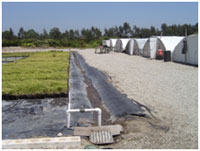- Agricultural Commissioner
- About Us
- FAQs
- Funding
- How We Are Funded
- County General Fund
- Pesticide Use Reporting
- Oak Death Inspection
- Pierce’s Disease Control
- Pierce’s Disease Nursery Treatments
- Organic Crops Program
- Seed Inspection
- Nursery Inspection
- Farmers Market Inspection
- Land Use Planning
- Pest Control Business Registrations
- Citrus Maturity Inspection
- Programs
- How We Spend Our Time
- Pest Detection and Eradication
- Citrus Inspection and Commodity Regulation
- Pierce’s Disease Control
- Pest Exclusion and Plant Quarantine
- Seed Inspection
- Nursery Inspection
- Farmers Market Inspection
- Egg Quality Control
- Apiary Inspection
- Crop Statistics
- Pesticide Use Enforcement
- NPDES MS4 Permit Compliance Inspections
- Land Use Planning
- Toland Landfill Project
- Weights & Measures
- FORMS/DATA
- Notices
- APAC
- SALC GRANT
- Crop Reports
- Contact Us
- Agricultural Commissioner
- About Us
- FAQs
- Funding
- How We Are Funded
- County General Fund
- Pesticide Use Reporting
- Oak Death Inspection
- Pierce’s Disease Control
- Pierce’s Disease Nursery Treatments
- Organic Crops Program
- Seed Inspection
- Nursery Inspection
- Farmers Market Inspection
- Land Use Planning
- Pest Control Business Registrations
- Citrus Maturity Inspection
- Programs
- How We Spend Our Time
- Pest Detection and Eradication
- Citrus Inspection and Commodity Regulation
- Pierce’s Disease Control
- Pest Exclusion and Plant Quarantine
- Seed Inspection
- Nursery Inspection
- Farmers Market Inspection
- Egg Quality Control
- Apiary Inspection
- Crop Statistics
- Pesticide Use Enforcement
- NPDES MS4 Permit Compliance Inspections
- Land Use Planning
- Toland Landfill Project
- Weights & Measures
- FORMS/DATA
- Notices
- APAC
- SALC GRANT
- Crop Reports
- Contact Us
NPDES MS4 Permit Compliance Inspections


Agricultural Inspectors inspect commercial nurseries and nursery centers located within the unincorporated areas of the County to ensure that the business is in compliance with the requirements of the National Pollutant Discharge Elimination System (NPDES) and Waste Discharge requirements for the storm water and non-storm water discharges from the Municipal Separate Storm Sewer System (MS4).
The University of California helped develop a list of practices called Best Management Practices (BMP’s). If these BMP’s are followed they will reduce or eliminate the amount of pollutants discharged in water runoff from a Commercial Nursery or Nursery Center. These BMPs are to make sure that water discharged from the facility does not contain pollutants that could end up in stormwater runoff, and that the facility complies with all of the county ordinances regarding outdoor loading, unloading and storage of materials and equipment. Pollutants can drain into lakes, streams, ponds and eventually the ocean if proper procedures are not followed when liquid chemicals or raw materials are stored outdoors; equipment is cleaned; or during maintenance of buildings and grounds. Runoff in Ventura County occurs most often during a storm where there is heavy rainfall. The rainfall runs off of the property and is caught in the storm drain. These drains eventually lead to the ocean. Pollutants that are on equipment, surfaces, raw materials or grounds can runoff with the stormwater. While the discharge from any one facility can be very small, all facilities taken together might result in significant pollution running off into the ocean where it could impact wildlife, the public and the environment. Facilities that store equipment, chemicals and raw materials outdoors are often required to obtain a permit from the California Department of Water Resources. Agricultural inspectors insure that the conditions spelled out in those permits are being adhered to by the facility. These inspections are funded by Ventura County Public Works Agency/Water Quality Section. Agricultural inspectors are often out in Nurseries and Nursery Centers performing other inspections and so it is more efficient and cost effective for them to also do these inspections while there, rather than the PWA sending out inspectors of their own.



